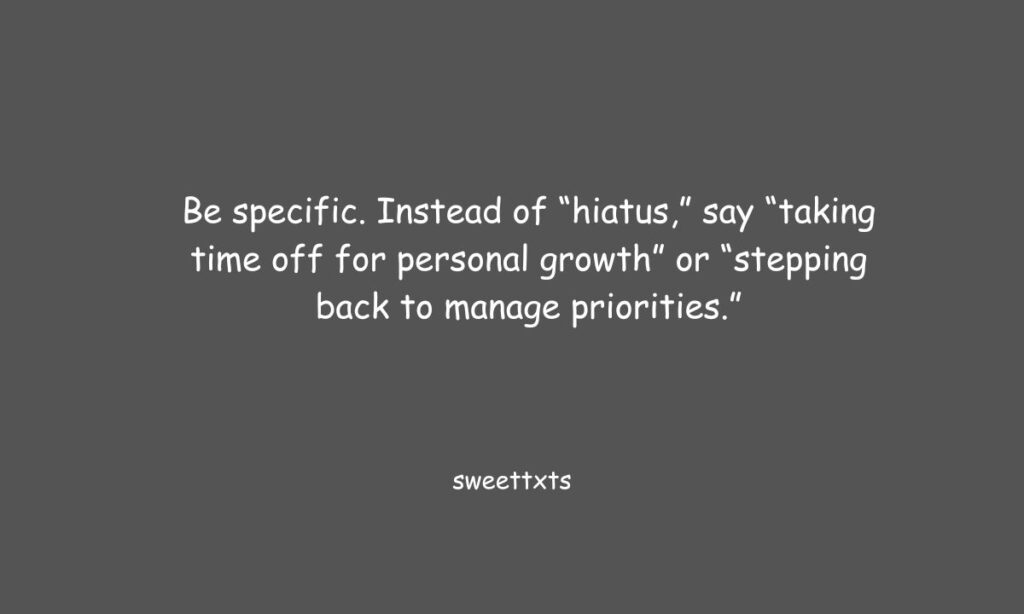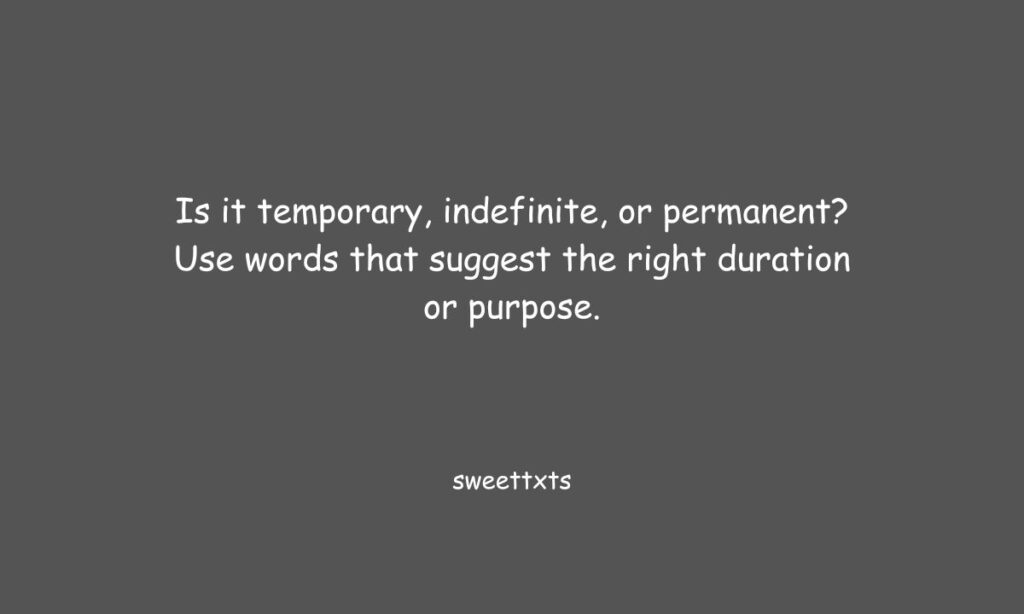SMH is a short word people use in messages and online. It means “shaking my head.” People use it when they see something silly, wrong, or surprising.
Sometimes people use the word hiatus when they stop doing something for a short time. But there are other words you can use instead of hiatus, like break, pause, or time off.
Using simple words helps people understand better. Choose the best word based on who you are talking to. That way, your message stays clear and kind.
This comprehensive article will cover:
- The full meaning and usage of SMH
- What SMH means in text
- Nuances of tone and context
- Alternatives to the word “hiatus”
- How to choose the best phrase for your situation
- And 11 polished examples to tie it all together
What Does SMH Mean?
SMH stands for “Shaking My Head.”
It is an internet acronym that expresses disappointment, disbelief, or frustration. It’s typically used in digital conversations when someone finds something foolish, annoying, or just plain absurd.
Origin of SMH
SMH first appeared in early internet slang, especially on platforms like Twitter and messaging boards in the early 2000s. Over time, it became a universal abbreviation that users of all ages and backgrounds understand and use—especially in informal and casual contexts.
SMH Meaning in Text*

When used in text messaging or online conversations, SMH serves as a quick reaction to something frustrating or baffling. Here are a few examples of how it may appear in text:
- “You forgot your keys again? SMH.”
- “He said the Earth is flat. SMH.”
- “They canceled the show after one episode… smh.”
Notice how SMH can be lowercase or uppercase, but it retains the same meaning. The tone it conveys is usually disappointment, annoyance, or mild judgment, but it’s not always harsh. Sometimes it’s even humorous or sarcastic.
Emotional Tone of “SMH” in Text
Depending on the context, SMH can be:
- Playfully sarcastic: “You really thought pineapple on pizza was a crime? Smh 😂”
- Mildly disappointed: “Forgot the meeting again, huh? SMH.”
- Genuinely frustrated: “I can’t believe this happened again. SMH.”
The tone and emotion behind it rely on the situation and the relationship between the people communicating.
When to Use “SMH” — And When Not To
Appropriate Situations:
- Informal chats with friends
- Text messages or DMs
- Social media posts
- Meme captions
- Comments or replies on lighthearted threads
When to Avoid It:
- In professional emails
- Formal writing (essays, articles, reports)
- Academic work
- Serious business conversations
Instead of “SMH,” in formal contexts, consider expressing your thoughts with complete sentences that reflect your professionalism and tone, such as:
- “I find this decision disappointing.”
- “I respectfully disagree.”
- “This is quite surprising.”
Polite, Professional, and Casual Alternatives to the Phrase “Hiatus”

The term “hiatus” refers to a pause, break, or gap in a sequence, series, or activity. It is commonly used in contexts like:
- Entertainment (e.g., “The show is on hiatus.
- Professional life (e.g., “She’s on a career hiatus.
- Social media (e.g., “Taking a short hiatus from Instagram.
However, sometimes the word “hiatus” might feel too formal, vague, or overused. In those cases, using alternatives can add clarity, personality, or professionalism depending on your context.
Let’s explore 11 polished alternatives to the word “hiatus,” each with examples, tone indicators, and suggested usage.
1. Break
Tone: Neutral, casual
Example: “I’m taking a short break to recharge.”
When to Use: Ideal for friendly or personal announcements, especially when the break is brief or casual in nature.
2. Pause
Tone: Thoughtful, calm
Example: “We’ve decided to pause production for now.”
When to Use: Great for professional or creative work announcements when something is being temporarily stopped.
3. Time Off
Tone: Friendly, practical
Example: “I’m taking some time off to focus on my health.”
When to Use: Perfect for workplace communication, personal updates, or social media.
4. Sabbatical
Tone: Academic, formal
Example: “She’s on sabbatical this semester to conduct research.”
When to Use: Best in professional, academic, or institutional settings.
5. Leave of Absence
Tone: Official, serious
Example: “He’s on a leave of absence due to personal reasons.”
When to Use: Suitable for HR, workplace, or official correspondence.
6. Downtime
Tone: Relaxed, casual
Example: “I’m planning some downtime this weekend.”
When to Use: Good for casual conversations, self-care talk, or informal blog content.
7. Rest Period
Tone: Gentle, respectful
Example: “She’s taking a rest period to recover.”
When to Use: Effective in wellness discussions, healthcare contexts, or recovery updates.
8. Intermission
Tone: Creative, playful
Example: “Consider this an intermission—be back soon!”
When to Use: Fun for entertainment or creative projects, especially when addressing an audience.
9. Hiatus (with Clarification)
Tone: Balanced, formal
Example: “We’re on a brief hiatus to reassess our goals.”
When to Use: If you still use “hiatus,” adding clarity helps avoid vagueness.
10. Recess
Tone: Light, semi-formal
Example: “Think of it as a short recess from regular duties.”
When to Use: Suitable in educational or structured environments.
11. Creative Retreat
Tone: Inspirational, artistic
Example: “I’m on a creative retreat to find new inspiration.”
When to Use: Perfect for artists, writers, or entrepreneurs sharing updates with an audience.
How to Choose the Right Alternative to “Hiatus”
When selecting the best word to use instead of “hiatus,” consider the following:
1. Audience
- Is this for a professional email, blog post, social media, or private message?
2. Formality
- Use “leave of absence” or “sabbatical” for official documents.
- Use “break” or “pause” for casual or semi-formal settings.
3. Clarity
- Be specific. Instead of “hiatus,” say “taking time off for personal growth” or “stepping back to manage priorities.”
4. Tone
- Keep it gentle and warm when discussing health, rest, or emotional well-being.
- Be direct and neutral for business updates.
5. Intent
- Is it temporary, indefinite, or permanent? Use words that suggest the right duration or purpose.
Final Thoughts
Language is powerful because it adapts to context, emotion, and audience. Understanding short forms like “SMH” helps you keep up with the fast pace of digital communication, while mastering alternatives to common words like “hiatus” ensures your messages resonate with clarity and professionalism.
Whether you’re texting a friend, crafting a social media update, or writing a formal announcement, knowing when and how to use each expression gives you greater control over your tone and message. Use these tools wisely, and you’ll communicate with confidence across all platforms.

Daily blessings and uplifting messages by Drupmo for every morning, evening, and day of the week—bringing peace, hope, and inspiration to your soul.